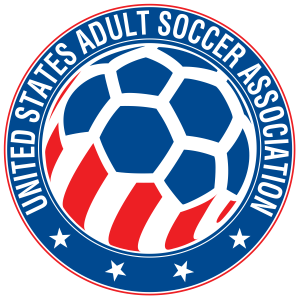National Amateur Cup tells the story of the beautiful game. By Dan Vaughn
National Amateur Cup tells the story of the beautiful game.
by Dan Vaughn
Soccer America Confidential
July 22, 2024
In a country as young as the United States, 100 years is a long time.
In 1924, the National Amateur Cup final was played for the first time, crowning a champion of American amateur soccer. Every year since, excluding the 2020 pandemic year, amateur clubs from around the country have played through a bracket until the final two face off for the title of best amateur soccer team.
USASA executive director Bruce Bode, describes the history of the Cup as important, though a little complicated in the beginning. “At the time the Amateur Cup was founded in 1924, it was before the founding of U.S. Soccer (the organization), and amateur soccer clubs were the real representatives of American soccer. There were a lot of factory and ethnic teams, primarily from the Midwest and East.”
The first amateur cup final was played between two such clubs: a factory team, Fleisher Yarn, and an ethnic team, Chicago Swedish Americans. Fleisher won the first final 3-0.
Since then, there have been champions from across the country. Teams from Philadelphia to Denver, Dallas to Detroit, have won the National Amateur Cup. The list of past amateur cup holders is the history of the sport, showing the spread of soccer from the East Coast to the Rust Belt and out West. The history of the Cup tells the story of the beautiful game.
This year’s finals will take place in Dekalb County, Illinois, just outside of Chicago, with the semifinals kicking off on Thursday and the championship match on Saturday to see which team will hoist the Fritz Marth Cup. The host organization of this year’s tournament is USASA local member, Dekalb County United.
2024’s Semifinalists
The participants in this year’s semifinals come from across the country, representing the four regions that USASA divides the country into. This year’s teams are a perfect blend of old and new school teams, displaying both the legacy and trends in American soccer.
Region I is represented by the Pancyprian Freedoms, a club founded by Greek immigrants in New York City in 1974. The team is a throwback to the many ethnic clubs that have won the tournament over the years and is highly decorated, winning the U.S. Open Cup three times in the early 80’s.
The team from Region II is a new face in the tournament, Milwaukee Torrent. Founded by former Bayer Leverkusen academy player, Andreas Davi, the team plays in the NPSL and is a perennial playoff contender, including this season. This is the club’s first time playing in the Amateur Cup.
Region III is represented by repeat-winner Tobacco Road FC. Created by a group of former teammates in 2014, the team has grown into a club soccer powerhouse in North Carolina. This marks the second year Tobacco Road has been the Region III winner. Last year it lost in the semifinals to eventual champion, MesoAmerica FC.
FC Arizona, which was just knocked out of the NPSL playoffs, is the champion of Region IV. While the team officially hails from Phoenix, the club has feeder programs throughout the state and extends from age five through semi-pro adult. FC Arizona is a developing program that is expanding in its home state.
Eyes on the prize
While every club sees competitions like these in their unique ways, every team representative highlighted the significance of the USASA Amateur Cup and the value it would bring to their organization and players.
“The Amateur Cup is another great event to bring teams together from across the country. FC Arizona will always look to showcase our players, and look for opportunities to help them go to the next level. A lot of eyes are on our club right now,” said FC Arizona head coach Alejandro Aguilar.
Pancyprian assistant coach Paul Kontonis focused on his team’s storied history and how the Amateur Cup would be the newest addition to the New York club’s impressive resume. “Our expectation is to get to the final and play for a championship. That is what we are planning for.”
“Winning a national championship is obviously something unique. Now that you are in the semifinal, you obviously want to go all the way,” said Torrent’s Andreas Davi. Cedric Burke, Tobacco Road’s founder and head coach, is locked in on how close his team came last year and how he wants this year to be different: “Winning this title is why we started this club.”
For Bruce Bode and USASA, it’s the opportunity to showcase its organization members from across the country for a weekend to a large national audience. “We want to have an event where everyone walks away from it and says ‘this was great!’ We want the teams to have a great experience and want to come back again.”
